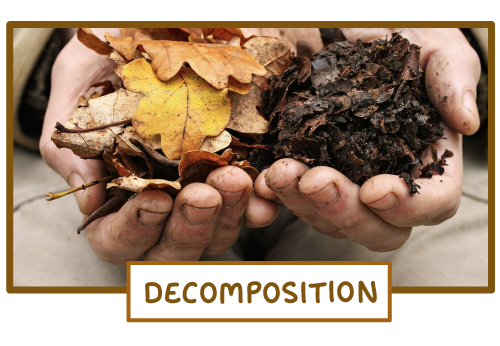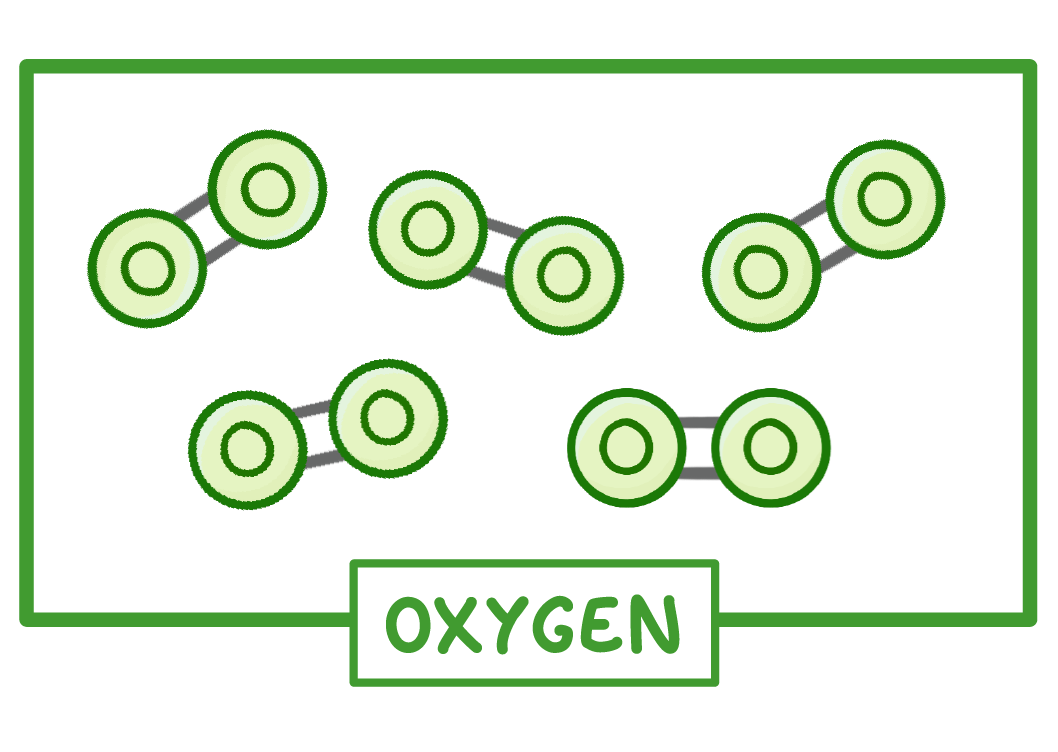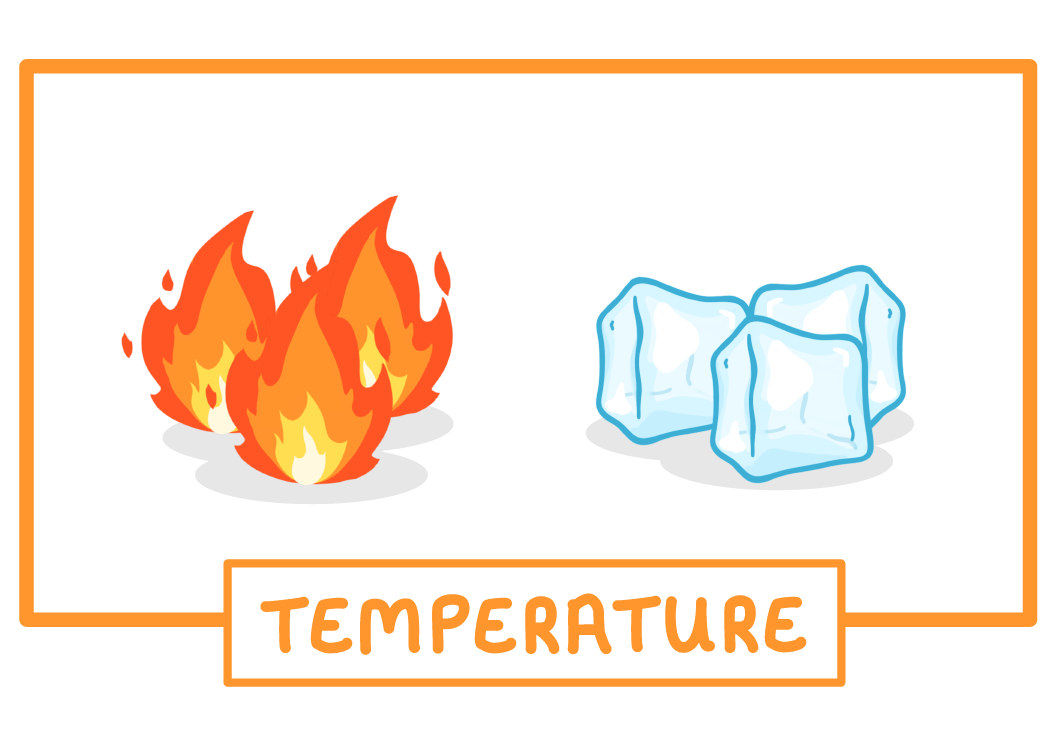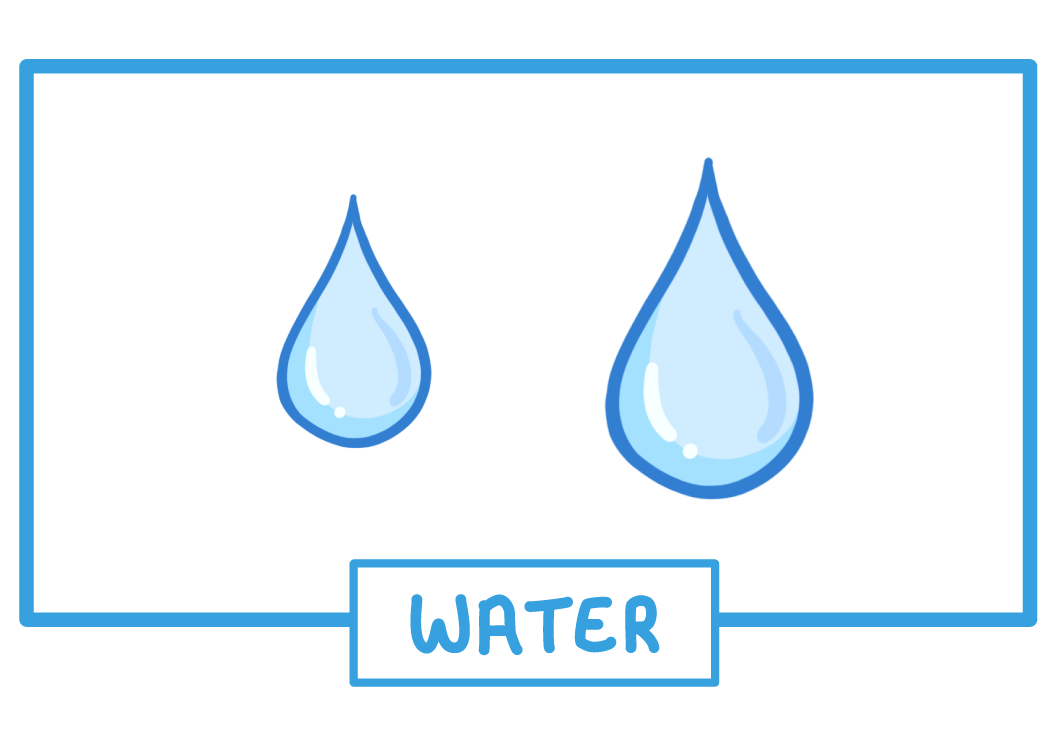Decay
This lesson covers:
- What 'decomposition' is
- The ideal conditions for decomposition
Decomposition Decomposition, often called 'rotting', is the process by which dead organic matter is broken down into simpler organic or inorganic substances, such as carbon dioxide, water, simple sugars, and minerals. Decomposition is essential for the recycling of elements throughout an ecosystem. |
 For example, when leaves fall from a tree and are slowly broken down in the soil, we say that they are decomposing. This recycles the carbon, nitrogen, magnesium etc. and makes them available for the plants to absorb and use again. |
Detritus feeders and decomposers Decomposition is carried out by two groups of organisms: detritus feeders (detritivores), and decomposers.  |
Detritus feeders - small animals like worms and woodlice that feed on dead organic matter. |
Decomposers - microorganisms, such as bacteria and fungi. |
What is decay?
The breakdown of organic matter by the action of decomposers
The formation of urea by the liver
The production of glucose from carbon dioxide and water
|
Which of the following are detritus feeders?
Woodlice
Worms
Bacteria
Fungi
|
Factors that affect the rate of decomposition The rate of decomposition is affected by 3 environmental conditions: |
 1Oxygen availability Higher oxygen ➔ more aerobic respiration ➔ more energy available ➔ faster growth and decomposition |
 2Temperature Higher temperature ➔ particles have more kinetic energy & enzymes are closer to optimum temperature ➔ higher rate of reactions ➔ more decomposition However, if temperature rises too high, it will denature enzymes, decreasing the rate of reaction and therefore decreasing the rate of decomposition. |
 3Water content Decomposers need water to survive, so the rate of decomposition increases in moist conditions. However, if the soil becomes waterlogged then the oxygen levels will fall, which will decrease the rate of decomposition. |
What effect would lowering the temperature have on the rate of decay of an apple?
No effect on the rate of decay
Increase the rate of decay
Decrease the rate of decay
|
Oxygen is important for decomposition.
What process do bacteria need oxygen for?
|
Why could the rate of decomposition fall if soil becomes waterlogged?
|
What does anaerobic mean?
Without air
Without oxygen
With oxygen
With air
|